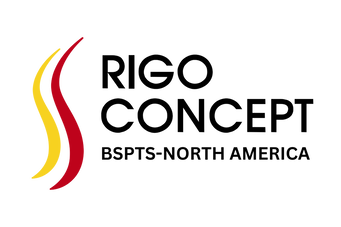Free for Medbridge subscribers or pay course by course. BSPTS-North America Teacher Cindy Marti is a featured presenter on Medbridge. These courses are excellent for:
- PTs looking for knowledge to improve their day to day practices
- PTs looking for introduction information as preparation or consideration for in-person BSPTS classes
- PTs that have taken the in person BSPTS classes and are looking for review
COURSES
- AIS 4 part series: Definitions and theory (1.5 hours); evaluation (2 hours), treatment guidelines and goals (2 hours), exercises
- Adult scoliosis: (2.5 hours)
- Hyperkyphosis: (2 hours)
COURSE DESCRIPTIONS
1. AIS four-part series
- Part 1: This course will provide entry level information about Adolescent Idiopathic Scoliosis (AIS). The course will define AIS, provide a basic understanding of the scientific theory of the etiology and pathomechanism of AIS, explain the differential diagnosis of AIS, and provide tools for predicting progression of deformity in order to prioritize care.
- Part 2:This course will provide an overview of clinical and radiological evaluation of AIS. Different curve pattern examples will be given using the Rigo Classification System as a foundation. Clinical evaluation tools will include postural assessment, use of Bunnell Scoliometer for measurement of angle of trunk rotation, and suggested respiratory assessments. Radiological evaluation will include education on Cobb angle and other spinal parameters.
- Part 3: The course will focus on published literature for appropriate decision making in treatment of AIS - including references from SOSORT (Society of Scoliosis Orthopedic Rehabilitation and Treatment), SRS (Scoliosis Research Society), and additional literature. The course will provide information on treatment recommendations based upon risk of curve progression and other variables, and outline goals of therapy based upon individual needs.
- Part 4: The course will define PSSE (Physiotherapeutic Scoliosis Specific Exercise) based upon accepted international standards in conservative management of scoliosis. Various schools of PSSE will be reviewed with an emphasis on the Schroth-Barcelona method. Exercise examples will be shown. PSSE will be contrasted to general physical therapy. Precautions for and modifications of general physical therapy and exercises will be given. The course is not intended for the application of PSSE by the clinician (advanced PSSE training is needed), but some simple scoliosis intervention suggestions will be given.
2 ) Adult scoliosis
The course will give an overview of scoliosis seen in adults. Differential diagnosis of adult onset degenerative scoliosis will be discussed. Key radiological characteristics related to quality of life for adults with scoliosis will be reviewed based upon published literature. Complexities of symptom presentations will be shared, including case examples Suggestions will be provided for clinical precautions and coordination of care with other scoliosis professionals. The course is not intended for the application of PSSE by the clinician (advanced PSSE training is needed), but some simple scoliosis intervention suggestions will be given.
The course will give an overview of scoliosis seen in adults. Differential diagnosis of adult onset degenerative scoliosis will be discussed. Key radiological characteristics related to quality of life for adults with scoliosis will be reviewed based upon published literature. Complexities of symptom presentations will be shared, including case examples Suggestions will be provided for clinical precautions and coordination of care with other scoliosis professionals. The course is not intended for the application of PSSE by the clinician (advanced PSSE training is needed), but some simple scoliosis intervention suggestions will be given.
3) Hyperkyphosis
The course will provide entry level information about Scheuermann’s disease and postural hyperkyphosis. Clinical evaluation and radiologic diagnostic criteria will be described. Treatment indications and goals for physical therapy will be explained. An overview of physical therapy concepts for Scheuermann’s Disease will be provided and in addition, example exercises will be shown. The course is not intended for full competency in treating Scheuermann’s Disease, (advanced training is needed), but some simple intervention suggestions will be given.
The course will provide entry level information about Scheuermann’s disease and postural hyperkyphosis. Clinical evaluation and radiologic diagnostic criteria will be described. Treatment indications and goals for physical therapy will be explained. An overview of physical therapy concepts for Scheuermann’s Disease will be provided and in addition, example exercises will be shown. The course is not intended for full competency in treating Scheuermann’s Disease, (advanced training is needed), but some simple intervention suggestions will be given.
